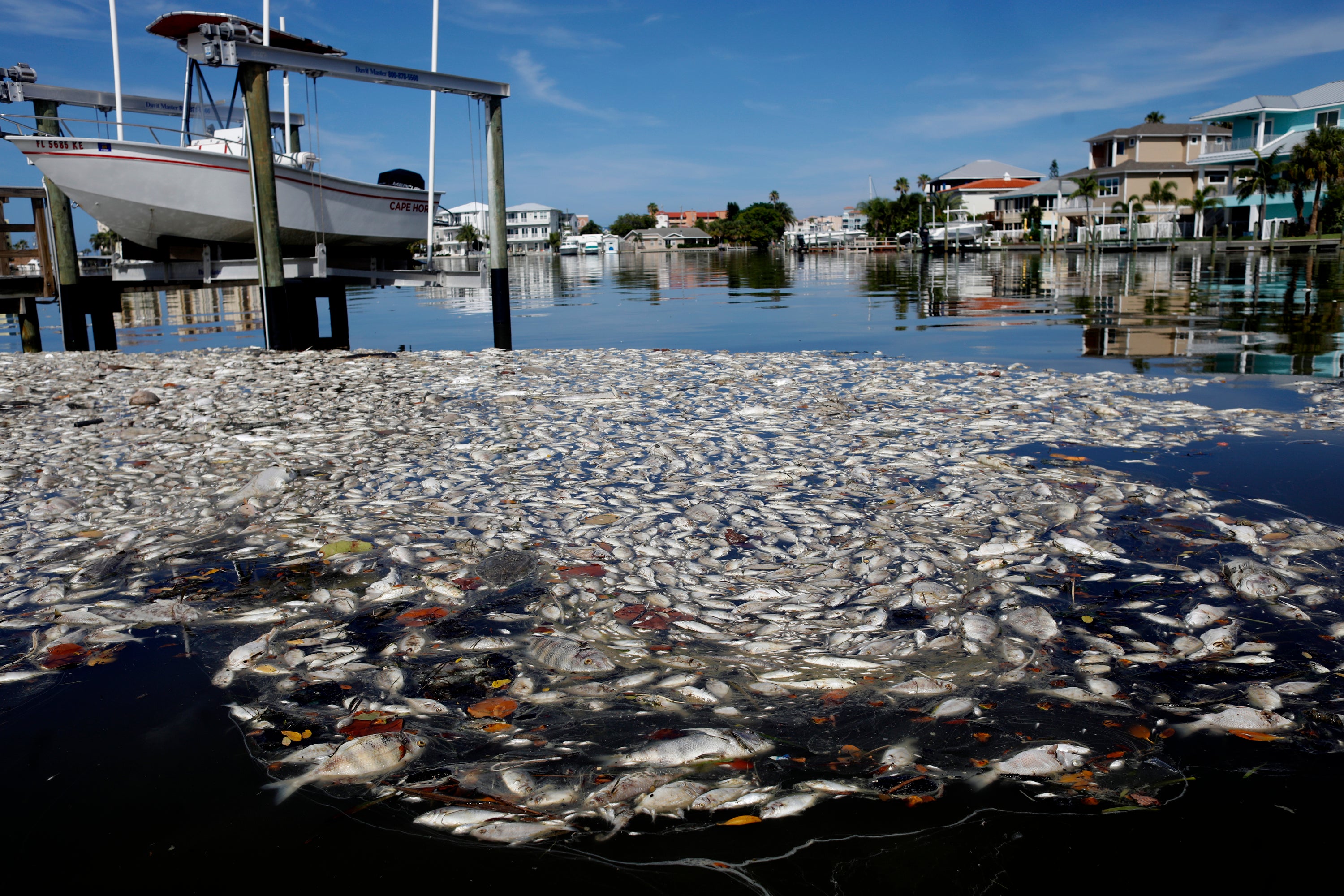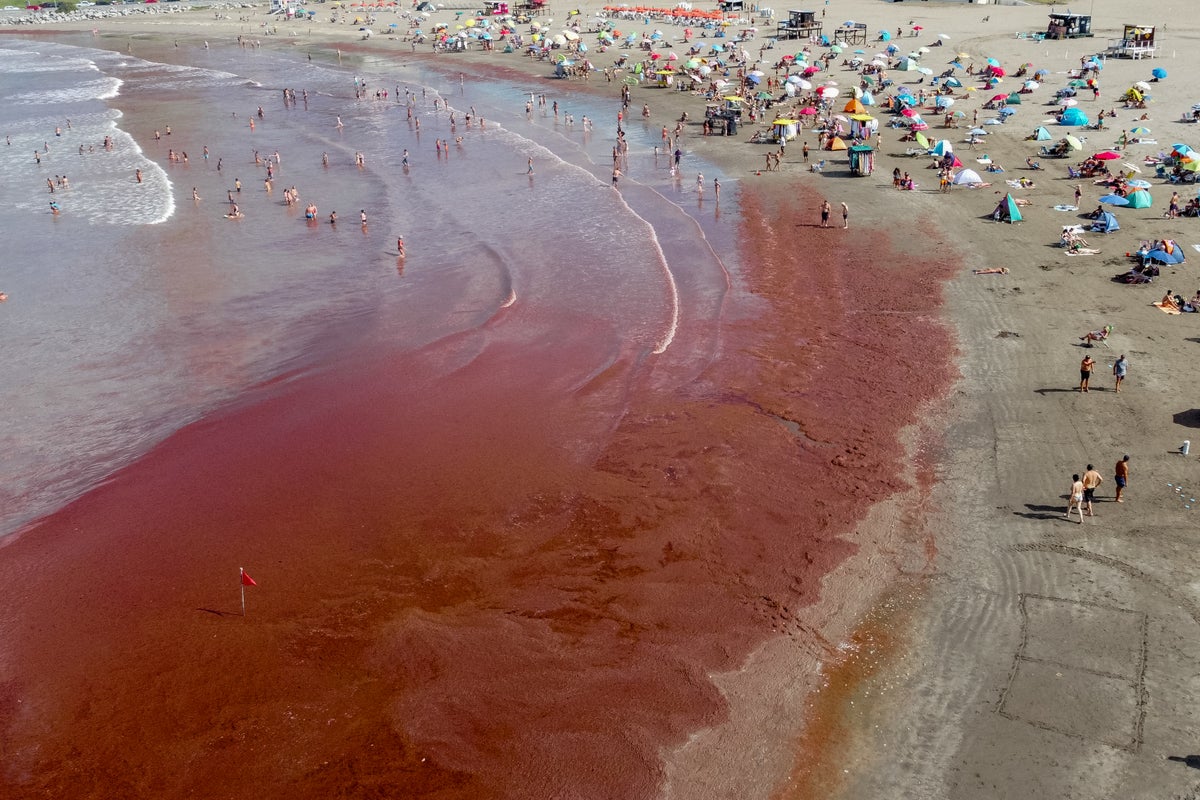Scientists might soon be able to forecast when the see is gonna turn red – and don’t worry, it has nothing to do with the apocalypse.
For the first time, researchers identified nearly a dozen viruses associated with red tides off Florida’s coast that are harmful and costly.
Also known as harmful algae blooms, red tides — the massive growth of algae that is tied to multiple organisms — are driven by wind and water currents, nutrients that run into the water, extreme weather events and unusually high temperatures.
They can kill birds, fish and other sea creatures and lead to health problems in humans, including shortness of breath and even death. Blooms can force health authorities to close beaches.

“We know that viruses play an important role in the dynamics of harmful algal blooms, but we haven’t known what viruses might be associated with Karenia brevis blooms,” Jean Lim, a postdoctoral researcher at the USF College of Marine Science, said in a statement. “Now that we’ve identified several viruses in red tide blooms, we can work to determine which viruses might have an influence on these events.”
Identifying the viruses can help forecast when the blooms occur and better understand what causes them to stop.
Red tide is a type of naturally occurring algae bloom that impacts the Sunshine State nearly every year: generally cropping up in the late summer or early fall, according to the Florida Fish and Wildlife Conservation Commission, which was a partner of the research.

Lasting usually for between three and five months, they can result in losses estimated at millions of dollars and affect hundreds of square miles. A swath stretching more than 200 miles impacted areas from Tampa Bay to Key West last month, according to WUSF, and Argentina saw beaches turn a shocking crimson at around the same time.
Karenia brevis is the organism that causes red tide.
During red tide events, the researchers collected Karenia brevis bloom samples to analyze in a lab. They used a method called viral metagenomics, a process that determines the make-up of the sample’s DNA, to find the viruses.

They don’t yet know how the viruses they found influence red tide blooms, but researchers say that because viruses target certain organisms, specific viruses may only infect Karenia brevis.
The researchers are working to determine whether the viruses have an influence on that organism or others in red tide blooms. Finding a potential link between how blooms occur and the presence of viruses could help to predict these events in the future.
“For example, an increase in the number of viruses found in a sample might suggest that a red tide bloom is about to begin, or that it is going to end,” Lim, who is the lead author of the research published in the American Society for Microbiology’s journal mSphere, explained.




